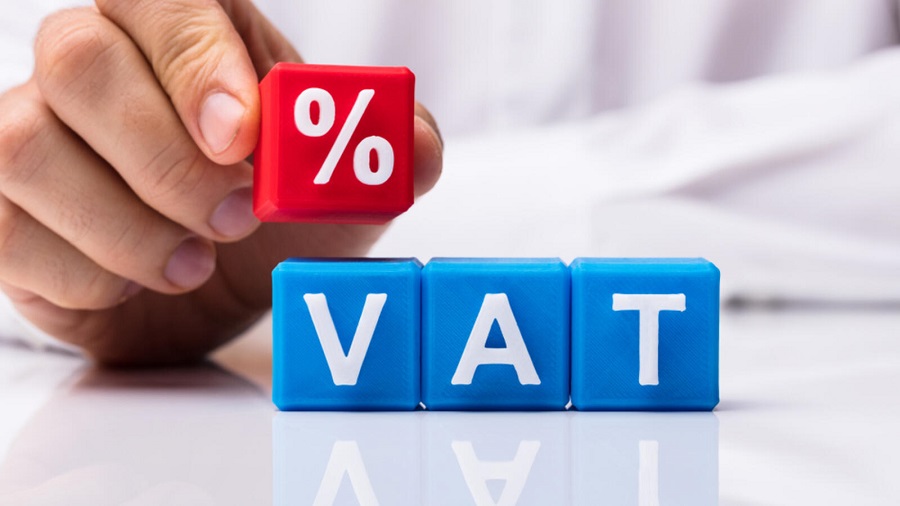Summary
- VAT is a consumption tax levied at 5% on the supply of goods and services.
- You can claim VAT by deducting your Input Vat from your Output Vat
- If you are registered for VAT you must levy 5% Vat on all goods and services excepZ
- Zero rated items are liable to VAT but at 0%
- Exempt goods are not liable to VAT
There are relatively two methods of administering VAT. These include the suspension scheme and the credit mechanism. The suspension scheme ensures that the taxes are deferred until the final consumption stage for instance, the Retail Sales Tax system in the US. However, the credit mechanism allows input taxes paid at the intermediate stages of the production of goods to be set off against the output tax. This in effect still allows for the VAT to be borne by the final consumer.
In Nigeria, VAT is administered via the credit mechanism. The law allows for you to claim VAT paid on the purchase of goods for resale (Input VAT) from the VAT charged at the point of resale (Output VAT). That is, your net VAT payable is your Output VAT less your Input VAT. However, this claim is only valid for goods. Input VAT incurred on services is not claimable against your Output VAT but should be posted into the profit or loss account as an expense.
If you’re registered for VAT, you have to charge VAT at 5% on all goods and services you supply, unless they fall into one of these categories:
- zero-rated
- exempt from VAT
Zero-rate of VAT
There are certain goods and services that are zero-rated. This means that they are liable to VAT, but the VAT rate is zero per cent. If you sell zero-rated goods, you can generally reclaim Input VAT on any purchases that relate to those sales. In Nigeria, these items were recently reintroduced into the VAT Act.
They include:
- Non-oil exports
- Goods and services purchased by diplomats
- Goods purchased for use in humanitarian donor-funded projects
Sellers are to charge VAT on the sale of these goods at 0%. As a result, there is no Output Vat from which you can reclaim the Input VAT incurred at the point of purchase. This may result in additional tax cost to the business. However, the Nigerian tax laws allow you to claim a refund or credit for the Input VAT.
VAT Refund Mechanism
The Nigerian tax laws provide a mechanism for claiming VAT refunds. The eligibility to claim VAT refunds arises where the Input VAT genuinely exceeds the Output tax for a transaction period. For a supplier of Zero-rated goods, the Input VAT would always exceed the Output VAT as the Output VAT is zero. There are three methods of refund available to Nigerian business owners. They include, the credit method, the direct cash refund method and the final method is a combination of both.
Credit Method
This is carried out with the use of VAT form 002 (VAT Self-assessment Form) which contains the calculation of total Output VAT and Input VAT. On this form the supplier of Zero-rated goods discloses the Output VAT of zero and Input VAT incurred. This method allows you to offset the credit balance of Input VAT against any subsequent Output VAT chargeable. This is a popular VAT refund approach and is encouraged by the Nigerian tax authorities. However, it will only apply where the supplier of Zero-rated goods also supplies other goods on which VAT is applicable at the standard rate. Where this is not the case, the direct-cash method is preferable.
Direct Cash Method
Under this method, an application is made to the FIRS stating the excess of Input VAT over Output VAT. This application is made along with the relevant supporting documents.
All claims for refund, irrespective of the mode of refund, are subject to verification by the tax authorities. It is therefore important for all supporting documents to be maintained. Some of such documents include,
- Monthly VAT return form 002 (a VATable entity is required to file monthly VAT returns stating it VAT status, whether or not VAT is payable);
- Input VAT invoices and sales invoices;
- Notices of import and original proof of tax payment on imports;
- Export documents, notices of export and proof of realization of export; and
- Any other relevant document needed to back up refund claim.
The audit is carried to confirm the amount up for claim by the taxpayer. The direct cash refund method is the method mostly prone to audit by the tax authorities. It is important to state at this point that this audit usually delays the refund process. Therefore, it is preferable to use the credit approach as you are able to personally administer the refund and there may not be a cause for audit by the tax authorities. Input VAT claim via the credit method becomes subject to audit by the tax authorities where the Input VAT amount has accumulated overtime and the company intends to offset the amounts against its current Output VAT.
Zero-rated goods and Exempt goods.
Many tax payers fail to distinguish between Zero-rated goods and Exempt goods. Exempt goods are not liable to VAT, so if you supply them, then:
- you don’t charge any VAT on them;
- you don’t include them in your VAT accounts; and
- you can’t normally reclaim VAT paid on purchase of inputs.
Therefore the major distinction between Zero-rated goods and Exempt goods is the ability to reclaim Input VAT incurred.
VAT exempt items are specifically listed in the Act and are primarily essentials. Some of which include:
- All medical and pharmaceutical products
- Basic foods items
- Books and educational materials
- Baby products
If you sell a combination of exempt goods and goods that are liable to VAT (whether at 5% or 0%), your business is ‘partly exempt’ and you will only be able to reclaim Input VAT related to the VAT incurred on the taxable goods.





















pls kindly advice me on how to go about this nagging issues am going through about VAT and WHT. Assuming I supply a construction firm some VAT able good and I charge them VAT and in return the company charge me WHT . Will I still remit the VAT that was not giving by the company by deducting WHT from my invoice. for example I supplied goods worth 500,000 and I charge 5% VAT making the total cost 525,000. and the company in returns deducts 5% WHT from my invoice making the total money am to be paid to be 500,000. who is going to be liable for returns to FIRS. Please your candid advice is highly needed.
Here is how it works. Let’s even assume that you forgot to charge Vat and then invoice the company N500k. The company will deduct N25k from you as WHT and then remit on your behalf to the FIRS leaving you with just N475k. So basically whether you charge VAT or not a WHT must be deducted from your invoice. If however, you forgot to charge VAT you will still pay the FIRS their N25k leaving you now with N450k meaning that you near the loss.
So back to your original question, you still pay the FIRS the N25k in Vat, leaving you with a net balance of N475k. However, you recover your N25k back when you get a tax credit for the N25k deducted from you in WHT. Recall that a WHT is basically an advance tax which will be refunded when you file your tax returns. Where it however gets tricky is that you must obtain a WHT Credit note from your supplier for you to even get your N25k back. Hope we answered your question well?
But kindly note that you can only use WHT to strictly offset CIT. FIRS will not allow you excuse unpaid VAT for WHT. This is a common problem for individuals in employment, partnerships and business names who don’t have CIT obligations yet they experience adekola’s issue. Therefore they often times suffer double taxation. Infact you cannot use WHT to reduce EDT. I think our tax laws are not just robust enough and they have too many questionable grey areas.
Please i need some clarifications on BDC whether they are liable to pay VAT to FIRS.
Pls kindly assist;supposing am a construction firm and my clients give me the work of consultancy on their project,they are the one to supply all the materials(by sending the actual cost of the material to my account) needed am just to manage or over-see the project,pls am i to pay VAT? If yes what and what am i to VAT your advice is needed pls.
Please help me out with this situation around VAT . ECOWAS common external tariff (GET) applies the zero rated VAT concept on certain products imported into Nigeria. These products are not listed as non oil exports , goods and services for diplomats or humanitarian donor yet still it specifies a zero rate for vat charges.
My concern is clearly this document implemented by the Nigeria custom services takes away input vat . What about output vat is this also at a zero rate? Is their any reference to Government official gazette that captures this matter.
Please help.
is service charge in the hospitality industries a VAT exempted item in the computation of VAT payable?